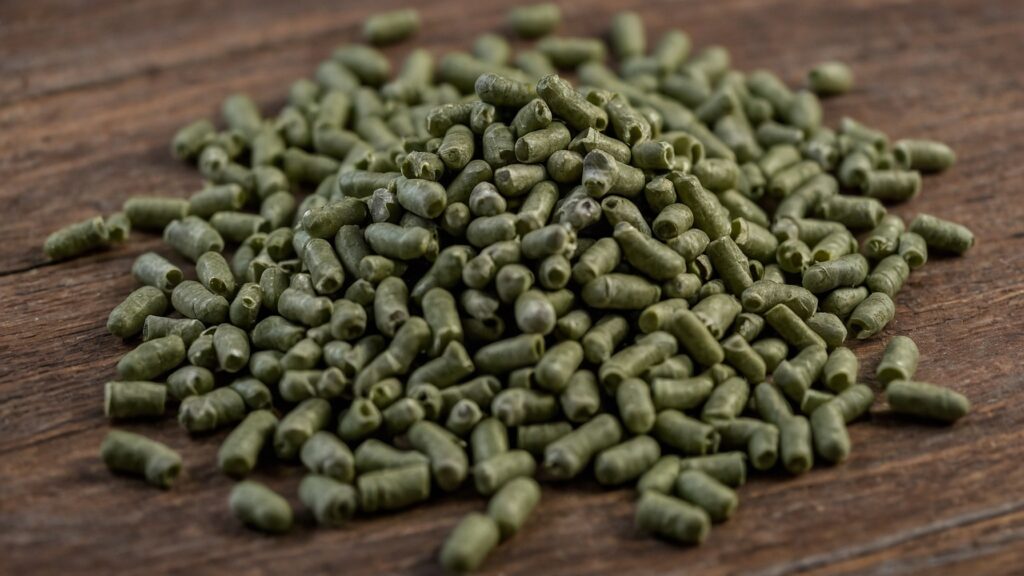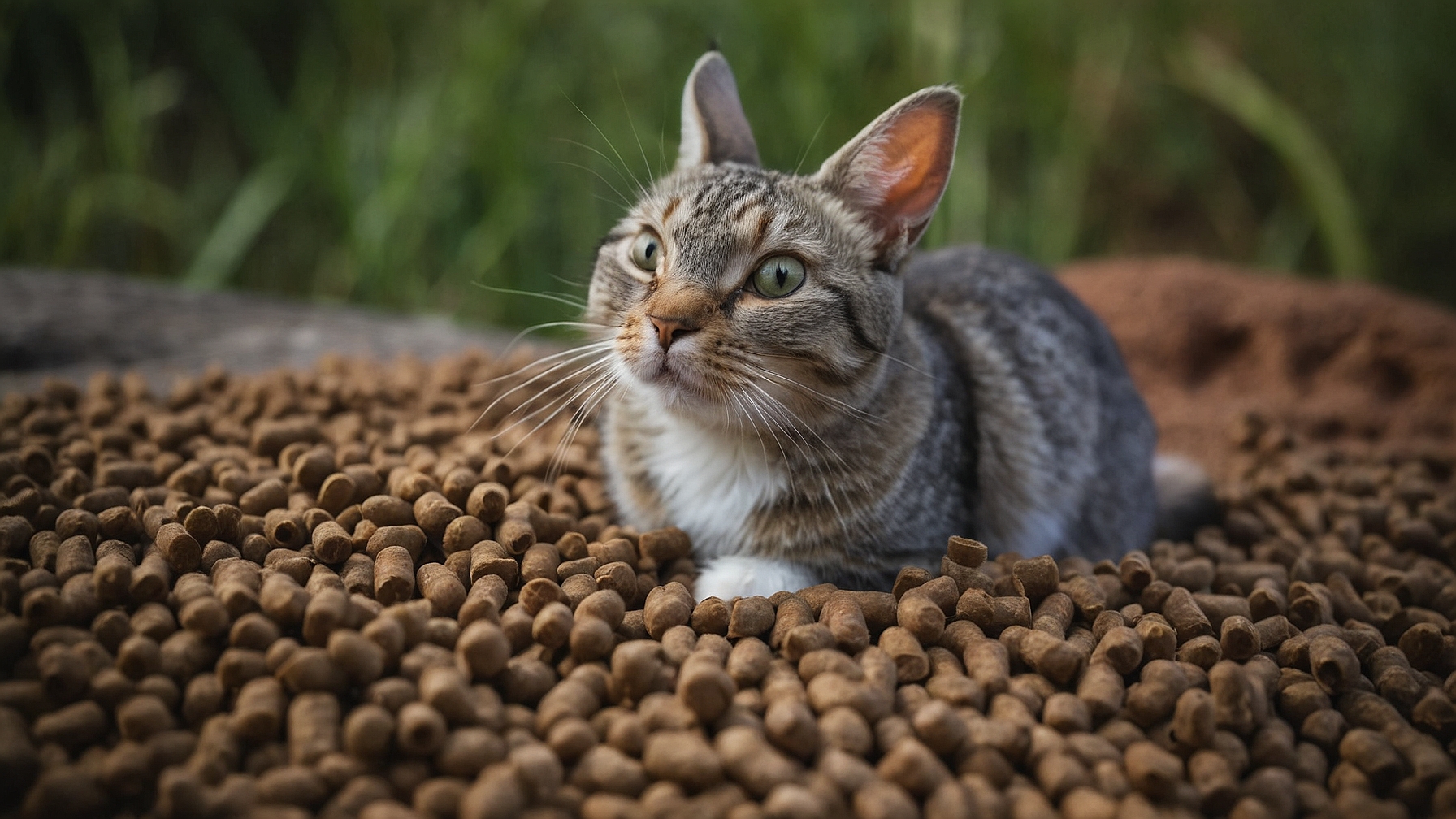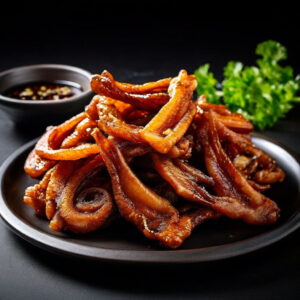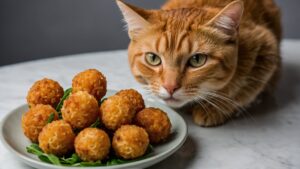The debate over whether cats can eat rabbit food has been a controversial topic among pet owners and veterinarians alike. While some may see rabbit food as a convenient and seemingly nutritious option for their feline friends, the truth is that there are significant nutritional differences between the dietary needs of cats and rabbits that cannot be overlooked. In this comprehensive guide, we’ll dive deep into the world of feline and rabbit nutrition to determine if feeding rabbit food to cats is truly a safe and healthy practice.
Table of Contents
What is Rabbit Food Made Of?
Commercial rabbit food typically consists of three main components: hay, pellets, and fresh vegetables. Let’s take a closer look at each of these ingredients:
- Hay: Rabbits are herbivores, and hay is an essential part of their diet, providing them with fiber and other nutrients necessary for their digestive system to function properly. The most common types of hay used in rabbit food are timothy hay, orchard grass, and alfalfa hay.
- Pellets: Rabbit pellets are designed to provide additional nutrients that may be lacking in hay alone. They are typically made from a combination of plant-based ingredients, such as alfalfa meal, wheat middlings, soybean meal, and various vitamins and minerals.
- Fresh Vegetables: A variety of fresh vegetables, such as carrots, kale, and spinach, are often included in a rabbit’s diet to provide additional fiber, vitamins, and minerals.
While these ingredients may seem nutritious at first glance, it’s important to note that rabbit food is not formulated to meet the specific nutritional needs of cats, which are obligate carnivores.
Can Cats Eat Rabbit Food? The Differences Between Cat and Rabbit Nutritional Needs
Cats and rabbits have vastly different nutritional requirements due to their unique physiological makeups and evolutionary adaptations. Understanding these differences is crucial in determining whether rabbit food can be a suitable diet for cats.
Cats: Obligate Carnivores
Cats are obligate carnivores, meaning that their bodies are designed to obtain most of their nutritional requirements from animal-based proteins and fats. Their metabolisms are adapted to efficiently digest and utilize these nutrients, which are essential for their overall health and well-being.
The ideal macronutrient ratio for cats is:
- Protein: 30-45% of their total caloric intake should come from high-quality, animal-based proteins. Proteins provide essential amino acids that cats cannot synthesize on their own, such as taurine, which is crucial for heart and eye health.
- Fat: 20-30% of their calories should come from fats, which provide energy, essential fatty acids, and aid in the absorption of fat-soluble vitamins.
- Carbohydrates: Cats have a limited ability to digest and metabolize carbohydrates efficiently, so their diet should only contain a moderate amount of carbohydrates, typically around 15-20% of their total caloric intake.
Additionally, cats require specific nutrients that are primarily found in animal-based sources, such as:
- Vitamin A: Found in animal liver and fatty fish, vitamin A is essential for vision, growth, and immune function.
- Vitamin B12: Obtained from meat, fish, and dairy products, vitamin B12 is necessary for red blood cell formation and neurological function.
- Taurine: An amino acid found in animal-based proteins, taurine is crucial for heart health, vision, and reproduction in cats.
Rabbits: Herbivores
On the other hand, rabbits are herbivores, meaning that their bodies are designed to obtain nutrients primarily from plant-based sources. Their digestive systems are adapted to break down and utilize the high fiber content found in grasses, hay, and vegetables.
The ideal macronutrient ratio for rabbits is:
- Fiber: Rabbits require a high-fiber diet, with hay making up the majority of their daily intake (around 70-80% of their diet).
- Protein: Rabbits only need a moderate amount of protein, typically around 12-16% of their diet, which is obtained from plant-based sources like alfalfa and soybean meal.
- Carbohydrates: The remaining portion of a rabbit’s diet should come from complex carbohydrates found in vegetables and grains.
Rabbits also have different mineral requirements compared to cats, particularly in terms of the calcium-to-phosphorus ratio. Rabbits require a higher calcium-to-phosphorus ratio (around 1.5:1 to 2:1) to support their bone health and overall growth.
Risks of Feeding a Cat Rabbit Food

Given the significant nutritional differences between cats and rabbits, feeding rabbit food to cats can pose various health risks. Here are some potential issues that may arise:
- Nutritional Deficiencies: Rabbit food is deficient in many of the essential nutrients that cats require, such as animal-based proteins, taurine, and various vitamins and minerals. Over time, these deficiencies can lead to serious health problems, including:
- Weight loss
- Muscle wasting
- Weakness
- Poor coat condition
- Vision problems
- Heart disease
- Reproductive issues
- Digestive Issues: The high fiber content in rabbit food can be difficult for cats to digest properly. This can lead to gastrointestinal problems, such as diarrhea, constipation, and potential intestinal blockages.
- Urinary and Kidney Problems: The improper calcium-to-phosphorus ratio in rabbit food can increase the risk of urinary tract issues and kidney stones in cats, which can be life-threatening if left untreated.
- Intestinal Obstruction: The long, fibrous strands found in hay and certain vegetables in rabbit food can potentially cause intestinal obstructions in cats if ingested.
Signs Your Cat Isn’t Getting Proper Nutrition
If you suspect that your cat may not be receiving adequate nutrition from their diet, it’s essential to watch out for the following signs:
- Dull, dry, or brittle coat: A healthy coat should be shiny and smooth.
- Weight loss or failure to gain weight: Cats should maintain a consistent, healthy weight.
- Lethargy or decreased activity levels: Nutritional deficiencies can lead to a lack of energy.
- Muscle wasting or weakness: Insufficient protein intake can cause muscle loss.
- Skin issues or poor wound healing: Nutrient deficiencies can impair skin and coat health.
- Increased thirst or urination: May indicate kidney or urinary tract problems.
- Digestive issues: Vomiting, diarrhea, constipation, or loss of appetite can signal a dietary issue.
If you notice any of these signs, it’s crucial to consult with your veterinarian immediately to identify and address the underlying cause.
Safe Healthy Treats for Cats
While rabbit food should not be a primary part of a cat’s diet, there are some safe and healthy treat options that can be given in moderation:
- Cooked lean meats: Cooked chicken, turkey, or fish (without bones or seasoning) can be a tasty and nutritious treat for cats.
- Freeze-dried meat treats: These are typically made from high-quality, single-source proteins and are a convenient way to provide a healthy snack.
- Small amounts of plain, cooked vegetables: Cats can have small amounts of cooked and unseasoned vegetables like carrots, green beans, or pumpkin as an occasional treat.
- Cat-safe fruits: Fruits like bananas, blueberries, and melon can be given in small quantities as a special treat.
Remember, treats should only make up a small portion (no more than 10%) of your cat’s overall daily caloric intake. It’s also essential to introduce new treats gradually and in limited amounts to avoid digestive upset.
When Rabbit Food Could Be Okay for Cats
While rabbit food is not recommended as a primary diet for cats, there may be some rare instances where small amounts could be acceptable on a case-by-case basis. However, it’s crucial to consult with your veterinarian before making any dietary changes.
In general, if a cat happens to nibble on a small amount of rabbit food accidentally or out of curiosity, it is unlikely to cause immediate harm. However, prolonged or regular consumption of rabbit food can lead to the previously mentioned nutritional deficiencies and health issues.
If your cat has specific dietary needs or allergies that require a more specialized diet, your veterinarian may suggest incorporating small amounts of rabbit food or certain ingredients from rabbit food into their diet under close supervision and with appropriate supplementation.
How to Properly Transition a Cat’s Diet
If you need to switch your cat’s diet for any reason, it’s essential to do so gradually to avoid digestive upset. Here’s a general guideline for transitioning a cat’s diet:
- Introduce the new food slowly: Start by mixing a small amount (about 10-20%) of the new food with their current food.
- Gradually increase the new food: Over the course of a week or two, slowly increase the ratio of new food to old food, allowing your cat’s digestive system to adjust.
- Monitor for any adverse reactions: Watch for signs of digestive distress, such as vomiting, diarrhea, or loss of appetite, and adjust the transition accordingly.
- Provide plenty of fresh water: Ensure your cat has access to clean, fresh water throughout the transition process.
It’s important to be patient and allow your cat to adjust to the new diet at their own pace. Some cats may transition more quickly than others, so listen to your cat’s cues and adjust the timeline as needed.
Conclusion
In conclusion, while rabbit food may seem like a convenient and potentially nutritious option for cats, the reality is that it lacks many of the essential nutrients that cats require for optimal health and well-being. Cats are obligate carnivores with specific dietary needs that cannot be adequately met by a diet primarily composed of plant-based ingredients.
Feeding rabbit food to cats on a regular basis can lead to various health issues, including nutritional deficiencies, digestive problems, urinary and kidney issues, and even the risk of intestinal obstruction. It’s crucial to provide your feline companion with a high-quality, vet-approved cat food that is formulated to meet their unique nutritional requirements.
However, if your cat has specific dietary needs or allergies that require a more specialized diet, your veterinarian may suggest incorporating small amounts of certain ingredients from rabbit food into their diet under close supervision and with appropriate supplementation.
Remember, a healthy and balanced diet is essential for your cat’s overall well-being and longevity. Always consult with your veterinarian before making any significant dietary changes and closely monitor your cat’s health and response to any new foods or supplements.
FAQs
Can I feed my cat just a little bit of rabbit food as a treat?
While small amounts of rabbit food are unlikely to cause immediate harm, it’s not recommended to make it a regular treat. Cats have different nutritional needs than rabbits, and prolonged consumption of rabbit food can lead to deficiencies and health issues.
My cat seems to really enjoy eating rabbit food. Is it okay to let them continue?
Just because your cat enjoys eating something doesn’t mean it’s good for them. Cats can be attracted to the taste and texture of rabbit food, but it doesn’t provide them with the necessary nutrients they require. It’s best to stick to a high-quality, vet-approved cat food as their primary diet.
What if I mix rabbit food with cat food? Can that make it more balanced?
While mixing rabbit food with cat food may seem like a reasonable compromise, it’s still not recommended. The balance of nutrients in cat food is carefully formulated, and adding rabbit food can disrupt that balance and potentially lead to deficiencies or excesses of certain nutrients.
Can kittens eat rabbit food?
No, rabbit food is not suitable for kittens. Kittens have even higher nutritional requirements than adult cats, and feeding them an improper diet can lead to severe developmental issues and health problems.
My cat seems to be allergic to certain ingredients in commercial cat food. Can rabbit food be a hypoallergenic alternative?
While rabbit food may seem like a potential alternative for cats with food allergies, it’s not a guaranteed solution. Rabbits and cats can still share some common allergens, and rabbit food may not provide the necessary nutrients for your cat. It’s best to consult with your veterinarian to find a suitable, vet-approved hypoallergenic diet for your cat.
Can I feed my cat rabbit food if I supplement it with other nutrients?
While supplementation may help address some nutritional deficiencies, it’s generally not recommended to try to balance a diet that is fundamentally inappropriate for your cat’s species. It’s much safer and easier to feed your cat a complete and balanced diet formulated specifically for their needs.




